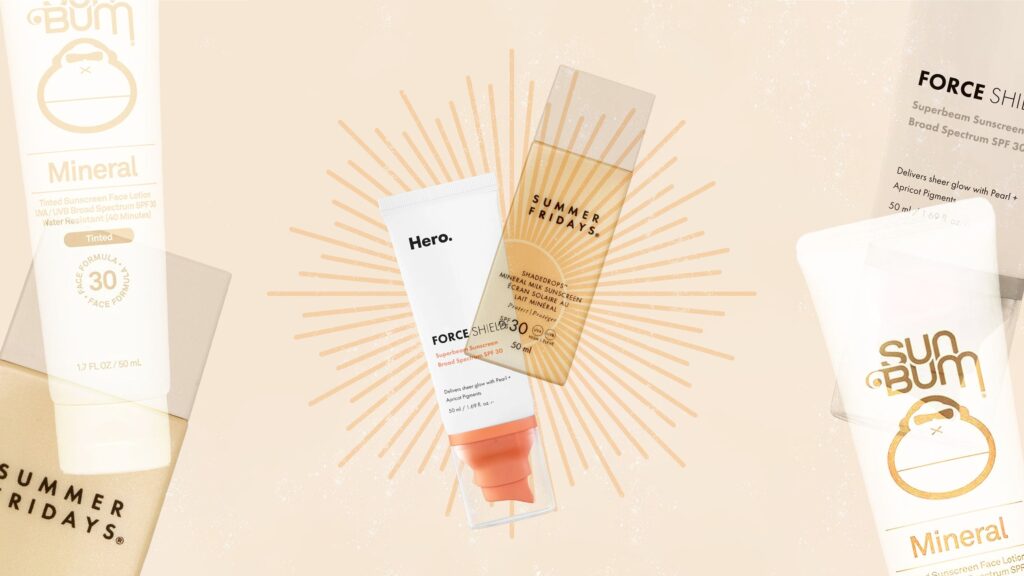We’ll make it snappy: Sunscreen is a non-negotiable part of any skin-care routine but it shouldn’t leave your skin red, inflamed, or itchy. If it does, toss out your current SPF and investigate some of the best mineral sunscreens on the market, which you’ll soon read about. For the most part, any broad-spectrum sunscreen is better than none but let’s be real: not all of them are created equal.
“Chemical sunscreens can be irritating and allergenic for some folks,” explains Adarsh Vijay Mudgil, MD a board-certified dermatologist and medical director of Mudgil Dermatology in New York City. Some folks, according to board-certified dermatologist Corey L. Hartman, founder of Skin Wellness Dermatology in Birmingham, Alabama, is a whopping “25 percent of all people,” he told Allure.
If that statement rings true for you, it’s time to consider a physical sunscreen with non-chemical shields. They reduce the risk of irritation to practically zero, due to “organic, inert, and hypoallergenic” formulas, Dr. Mudgil explains. Incidentally, sunscreens that don’t contain chemical protectants are generally healthier for coral reefs. (In fact, Hawaii banned the sale of products with chemical filters oxybenzone and octinoxate altogether.) However, take the term “reef-safe” with a grain of salt, as it’s not regulated.
Mineral sunscreens sit on the surface of your skin, physically reflecting and scattering “a wide range of UV wavelengths,” as New York City-based, board-certified dermatologist Hadley King, MD, explained to Allure. These wavelengths include UVB rays, which are responsible for sunburns, and UVA rays, which cause longer-term issues like hyperpigmentation, fine lines, and skin cancer. Another bonus of mineral formulas: They’re photostable and don’t have to be reapplied as frequently as chemical sunscreens.
So, how do you determine whether an SPF formula isn’t relying on chemicals to keep your skin shielded? According to Dr. Mudgil, “chemical-free sunscreens should only contain zinc oxide or titanium dioxide [or a mix of both] as their active ingredients.” (It’s important to note that there are some formulas that contain the aforementioned ingredients, plus chemical-based sunscreen compounds, so always triple-check.)
We’ll be the first to admit we’ve tried our fair share of mineral sunblocks that leave a white cast, prove difficult to rub in, and/or seem to suffocate the skin. But, thankfully, more sophisticated and cosmetically elegant formulations — especially those that earn the brown girl stamp of approval — are coming out by what seems like the day.
Below, check out the 17 best sunscreens formulated with mineral filters that’ll provide ample sun protection (SPF 30 or higher, always) and make reapplication a much less arduous task.

